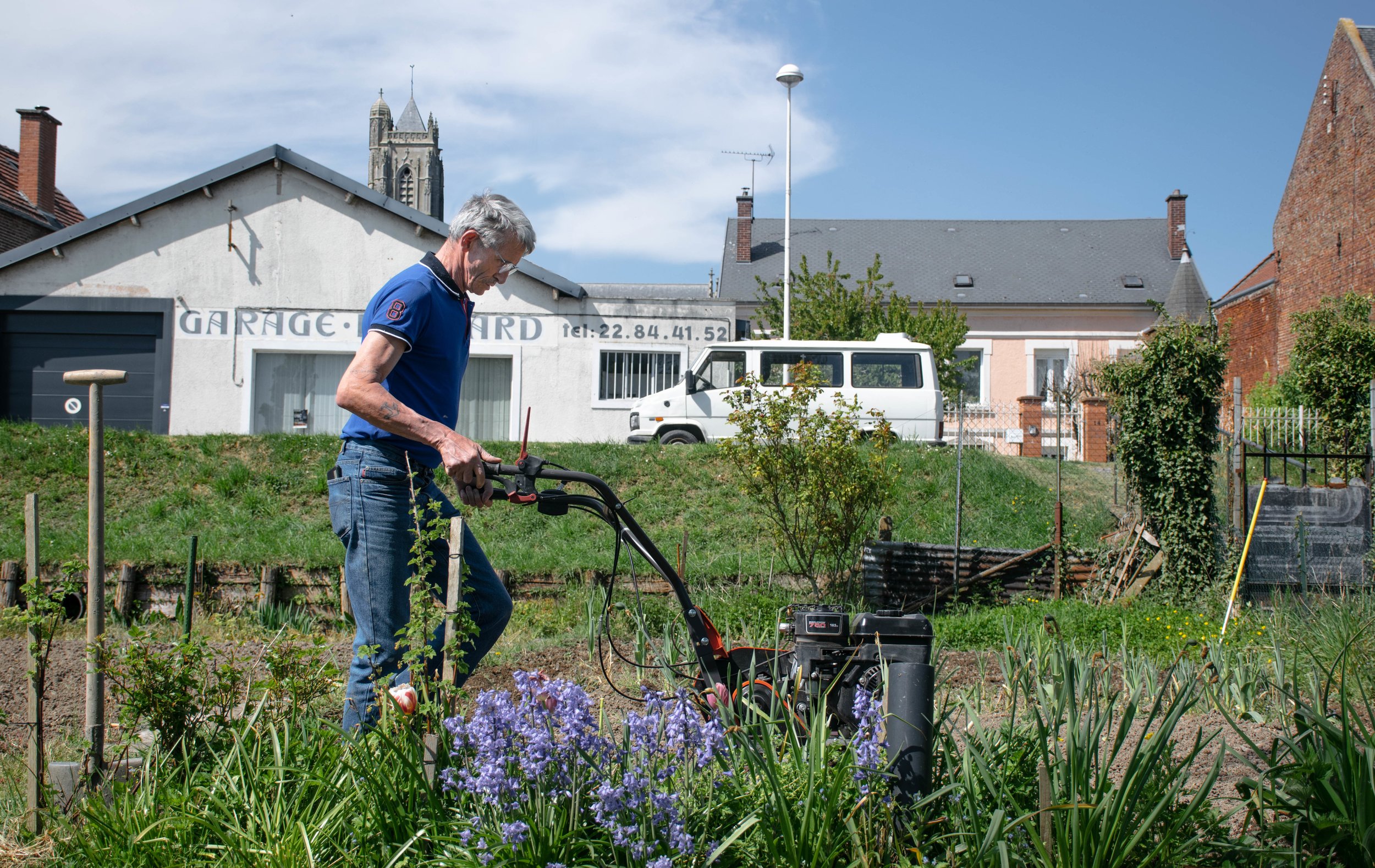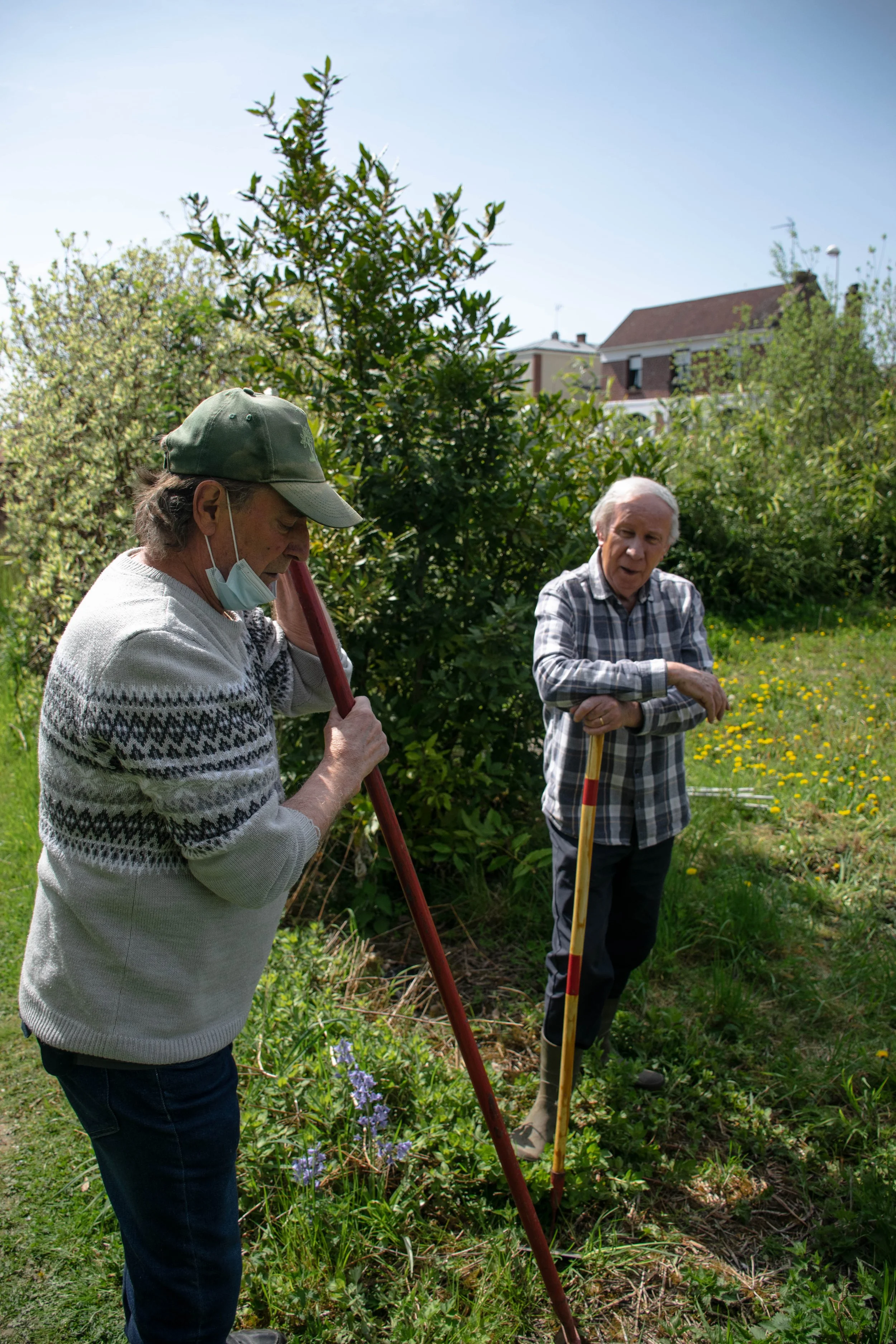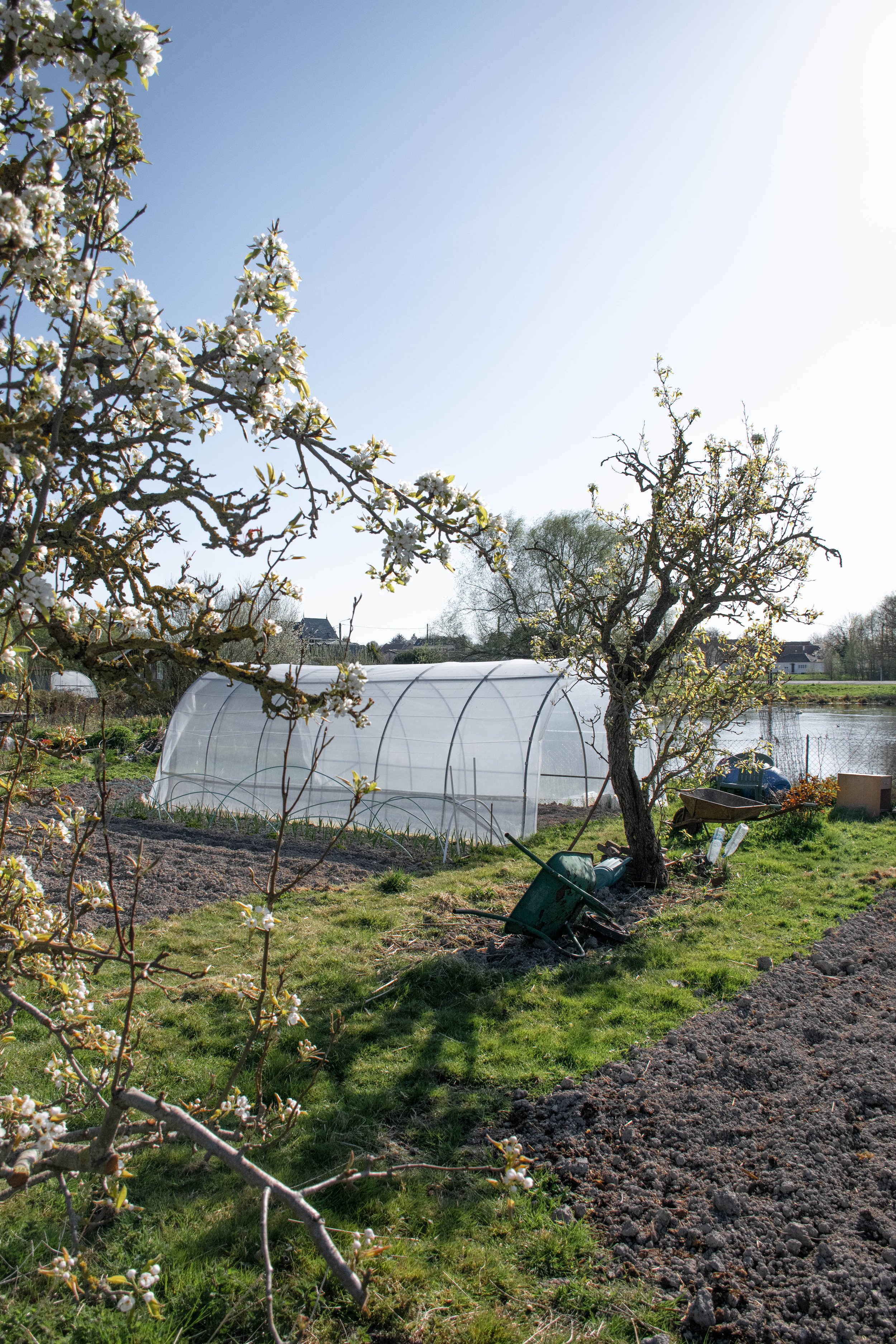Tilling the soil : the allotments
The allotments, small urban vegetable gardens that were created during the nineteenth century to help workers having better living conditions, a social balance and food self-sufficiency. These gardens are common in northern France where industrialization first took place. These gardens are mostly used for market gardening . In the city of Péronne, in the heart of a region known for its "large-scale farming" plateaus: fields of wheat, beet, potatoes, with gigantic dimensions, adapted to machines, there is a mosaic of small irregular gardens of a few tens of square meters each, at the edge of a pond with a rich fauna and endowed with a spectacular flora. And then, in the gardends, there are of course gardeners at work, some of whom are over 70 or 80 years old.
Pascal who has been working there on and off for 4 years, is now using a tiller before sowing some seeds
Pascal is one of the tenants of a small plots of these allotment gardens in Péronne. Each one of them manages a small piece of land, in exchange for a yearly payment to the city. The gardeners, who mainly grow vegetables, have on one side a street where walkers, wanderers and cyclists are often curious to see these strange gardens, and on the other side, the peaceful pond with its splendid greenery, where the wooded islands form a very pictorial landscape. The pond invites itself in the heart of the garden where gardeners come to fill their watering cans, with ducks and amphibians often venturing in the leeks and the peppermint.
"It is by forging that one becomes a blacksmith" Pascal tells me when I ask him if he knew about gardening before starting working on this plot 4 years ago. He explains to me that with all the people present in the gardens, many of whom are elders, the transmission of botanical knowledge and gardening skills is an important part of the learning process, the collective and social aspect is at the very heart of the allotment garden. Another obvious virtue one can benefit from these gardens according to him: the physical work that he contrats to the sedentary lifestyle whose damages are widespread today. Coexistence also implies compromises: no mechanical or thermal pumps to extract water from the pond to ensure an equitable distribution of water resources among everyone.
He and the others cultivate the soil on plots of a few dozen square meters each, enough to have vegetables for a large part of the year, and even enough to sell or give away in very productive years.
Each gardener has a little shack at their disposal, for storing
I then meet Alain, one of the members of the association which manages the gardens, and his friend Danny, who came to give him a hand. They have a whole plot of uncultivated land to work on in order to sow seeds that Danny shows me with enthusiasm, spinach, carrot, squash... And who wouldn't be excited by the simple idea that from small, dry and apparently sterile balls, juicy, crunchy, tasty vegetables could be born? These seeds, fruits of past lives, that of the plant from which they were extracted, but also that of countless generations of humans of the past, who have passed on to us over thousands of years viable and nourishing species of plants, by skilfully, patiently selecting the best varieties, so that we today, put them in the ground, to do the same thing again, year after year.
It is an old-fashioned agriculture in which we eat what we grow, where the calories gained by biting into a vegetable replace those spent painstakingly turning the soil to grow food. No pesticides here, the scale of the plots makes manual weeding an ideal choice.
The two friends, inexhaustible with anecdotes about the place, guide me in a narrow alley leading to other plots
Walking through these deserted gardens gives a strange feeling. The people who took care of this place, carefully shaping the space, tilling the soil, trimming the trees and planting the plants, have gone and will return later, leaving this place slightly dreamlike, with the sound of birds, frogs, abandoned tools on the floor, overturned wheelbarrows and empty benches all to myself to contemplate. I walk around in a comfortable quietude, imagining the face of each person who worked on that plot or another
Danny shows me radishes on one of the few plots that is not completely bare
Danny at work, in this overgrown plot where I met him and his friend
Pascal, examining what will be his first harvest for this year












